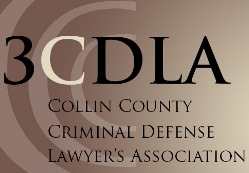Deferred Adjudication Records ARE PUBLIC RECORDS
There is a common misconception that deferred adjudication records are removed from a defendant’s criminal history upon successful conclusion of the community supervision (probation) period. In fact, the law does not provide for automatic expunction od deferred adjudication records. The records do become part of the defendant’s “permanent record” and the arrest, court proceedings and probation record will appear on a criminal background search.
Accordingly, unless there is a a court order directing otherwise, records of a prosecution resulting in deferred adjudication are publicly available in the District Clerk’s (Felony) and County Clerk’s (Misdemeanor) records, the Texas Crime Information Center database (maintained by the Department of Public Safety) and the National Crime Information Center (maintained by the Department of Justice). In addition, the records of the arrest, investigation and jailing are on file with the investigating agency (police or sheriff’s department), with the agency that jailed or processed the Defendant upon arrest (jail), and with the magistrate who set bond and conducted the initial appearance.
Under Certain Circumstances Deferred Adjudication Records Can be made NON-Public
There are 2 ways that deferred adjudication community supervision records can be made non-public:
1. Class C Deferred adjudications
By filing an expunction under Article 45.0151 (e) of the Code of Criminal Procedure IF the Class C Deferred Disposition was imposed by
a justice or municipal court, or by filing an expunction under Article 55.01(a)(2) of the Code of Criminal Procedure IF the Class C Deferred Adjudication was imposed by a county or district court. Expunction is NOT available for deferred adjudication sentences for Class B, Class A, or felony offenses.
2. Petition for Non-Disclosure
Under Section 411.081(d) of the Government Code, a court can prohibit criminal justice agencies from disclosing to the public criminal history record information related to certain offenses for which the offender was placed on deferred adjudication. There are many offenses, however, for which this procedure is unavailable. Moreover, a defendant may be disqualified if he commits an offense after the deferred adjudication has been completed but before the petition has been filed.
What Happens Once the Court Signs the Order of Non-Disclosure?
The court’s order will be sent to the Department of Public Safety. The Department of Public Safety will then send the order to all law enforcement agencies, jails or other detention facilities, magistrates, courts, prosecuting attorneys, correctional facilities, central state depositories of criminal records, and other officials or agencies or other entities of this state or of any political subdivision of this state, and to all central federal depositories of criminal records that there is reason to believe have criminal history record information that is the subject of the order. Those entities are obliged not to disclose the deferred adjudication record information to anyone other than:
• Other criminal justice agencies
• For criminal justice or regulatory licensing purposes
• An agency or entity listed in Section 411.081(i)
• The person who is the subject of the order
To know if you qualify for an expunction or a petition of non-disclosure contact my office. Typically fees are $1,000.00 plus county filing fees.









